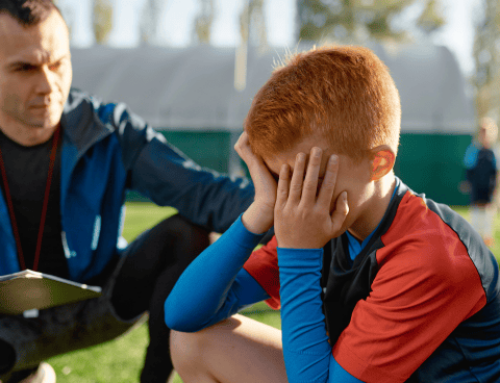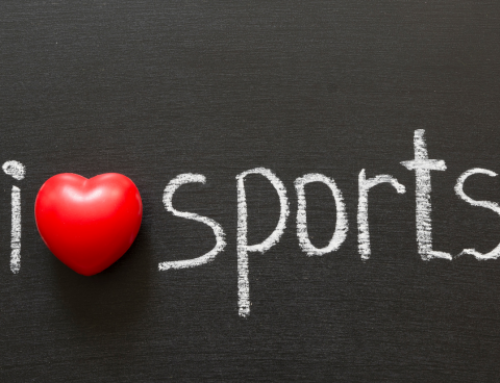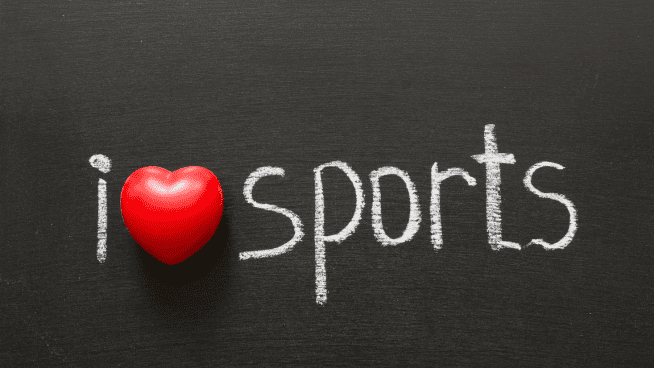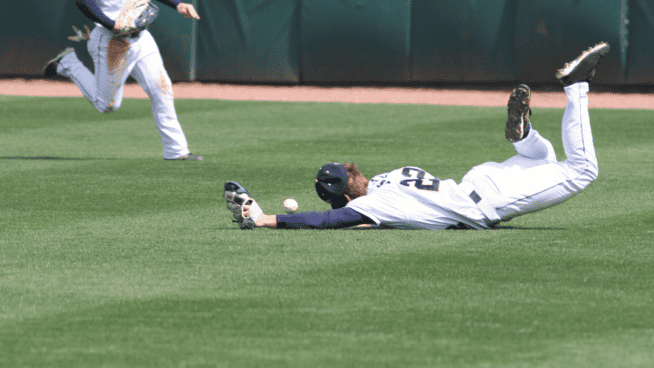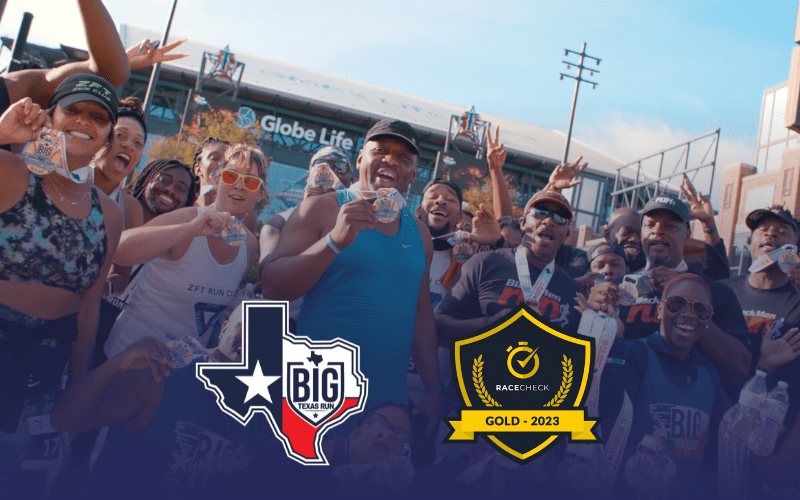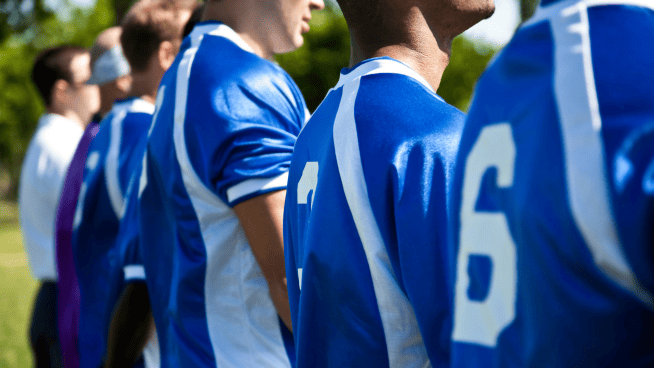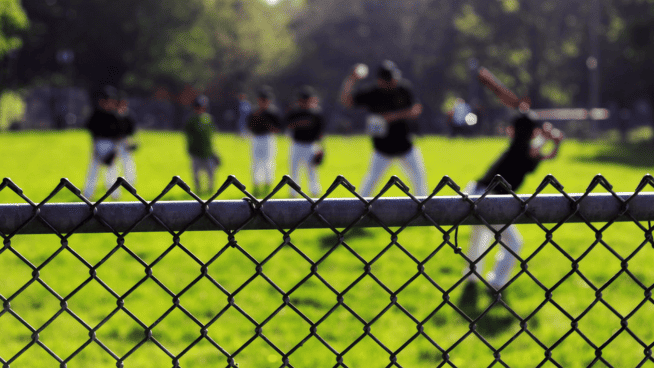How To Concentrate To Perform Better
Concentration is about finding the right information and staying focused on it.
Fun Brain Fact
Before getting into the nitty-gritty of concentration – a little fun fact for you: your brain is 80% water, and as little as a 2% loss of fluids has a negative effect on your ability to concentrate. As you’re preparing to improve your concentration or any aspect of your mental performance, keep that in mind to set yourself up for success with proper hydration.
Not only are we continuously bombarded with information in our perceptual world via our senses, we also use those same senses (sight, hearing, touching, tasting, smelling) to seek out or gain information specific to our performance on the field/court/mat.
Some of the information available to us is relevant to what we are doing, it matters, but you may have also guessed that most of the information available to our senses is irrelevant and does not matter.
For an athlete to deliver outstanding performances they must know the right information to look for, then be able to find that information, and then stay focused on it.
Concentraion = Thinking
Concentration can be ultimately boiled down to just another way of thinking, which makes it a skill, which makes it controllable and makes it a choice. This is what concentration is about – concentration is thinking right, distraction is thinking wrong; it’s your choice.
Athletes are usually comfortable with the concept of following a routine, doing something using the same steps, the same way, in the same order every time until it just becomes “routine.” But remember, it takes repetition to get routine down to where it feels natural. At first, you may stumble through the individual steps of a routine, and you may even think it’s hurting your performance. That’s totally normal!
Getting comfortable with a concentration routine is another way for athletes to set themselves up for success. Cook’s model of concentration below can provide the basis for an easy to grasp concentration routine.
For observing, athletes will see everything, find the things that matter, and focus solely on them. Next is reviewing your strategy – what is the play? What are your responsibilities? What is your job? For imagery, think of visualizing yourself delivering a great performance and then see it again, but this time so powerfully that you can feel it. Lastly trust you are focused, trust yourself, and now do it.
The Four-Step Routine:
- OBSERVE – Find the keys that matter
- STRATEGIZE – What’s the play? What’s your job?
- VISUALIZE – See it! Feel it!
- TRUST = Trust it! Do it!
Just like learning any new skill, at first, this concentration routine may feel awkward. After repetition and remaining consistent, persistent and relentless it will truly become routine. Commit to choosing to concentrate with this routine. Quickly enough you’ll feel comfortable, focused, and confident in the “See it! – Feel it! – Trust it!” routine.
Any number of distractions can try to break your concentration – the last play, a teammate breaking down, deception from opponents or upsetting calls by the officials. However, they are just distractions and being distracted is thinking wrong. Instead, re-focus, think about what matters and use your concentration routine and voila! The distractions are gone. Best part is, it was your choice so you have total control, which really turns into the fact that there are no distractions because you choose for them not to exist.
Concentrating on the present or the process can assist with focus. Concentrating on the future or the outcome can interfere with great performance.
Referring back to the Model of Mental Toughness created by Dr. Rick McGuire, Dr. Amber Selking and myself, concentration is our focus for today.
RECOMMENDED FOR YOU
MOST POPULAR
How To Concentrate To Perform Better
Concentration is about finding the right information and staying focused on it.
Fun Brain Fact
Before getting into the nitty-gritty of concentration – a little fun fact for you: your brain is 80% water, and as little as a 2% loss of fluids has a negative effect on your ability to concentrate. As you’re preparing to improve your concentration or any aspect of your mental performance, keep that in mind to set yourself up for success with proper hydration.
Not only are we continuously bombarded with information in our perceptual world via our senses, we also use those same senses (sight, hearing, touching, tasting, smelling) to seek out or gain information specific to our performance on the field/court/mat.
Some of the information available to us is relevant to what we are doing, it matters, but you may have also guessed that most of the information available to our senses is irrelevant and does not matter.
For an athlete to deliver outstanding performances they must know the right information to look for, then be able to find that information, and then stay focused on it.
Concentraion = Thinking
Concentration can be ultimately boiled down to just another way of thinking, which makes it a skill, which makes it controllable and makes it a choice. This is what concentration is about – concentration is thinking right, distraction is thinking wrong; it’s your choice.
Athletes are usually comfortable with the concept of following a routine, doing something using the same steps, the same way, in the same order every time until it just becomes “routine.” But remember, it takes repetition to get routine down to where it feels natural. At first, you may stumble through the individual steps of a routine, and you may even think it’s hurting your performance. That’s totally normal!
Getting comfortable with a concentration routine is another way for athletes to set themselves up for success. Cook’s model of concentration below can provide the basis for an easy to grasp concentration routine.
For observing, athletes will see everything, find the things that matter, and focus solely on them. Next is reviewing your strategy – what is the play? What are your responsibilities? What is your job? For imagery, think of visualizing yourself delivering a great performance and then see it again, but this time so powerfully that you can feel it. Lastly trust you are focused, trust yourself, and now do it.
The Four-Step Routine:
- OBSERVE – Find the keys that matter
- STRATEGIZE – What’s the play? What’s your job?
- VISUALIZE – See it! Feel it!
- TRUST = Trust it! Do it!
Just like learning any new skill, at first, this concentration routine may feel awkward. After repetition and remaining consistent, persistent and relentless it will truly become routine. Commit to choosing to concentrate with this routine. Quickly enough you’ll feel comfortable, focused, and confident in the “See it! – Feel it! – Trust it!” routine.
Any number of distractions can try to break your concentration – the last play, a teammate breaking down, deception from opponents or upsetting calls by the officials. However, they are just distractions and being distracted is thinking wrong. Instead, re-focus, think about what matters and use your concentration routine and voila! The distractions are gone. Best part is, it was your choice so you have total control, which really turns into the fact that there are no distractions because you choose for them not to exist.
Concentrating on the present or the process can assist with focus. Concentrating on the future or the outcome can interfere with great performance.
Referring back to the Model of Mental Toughness created by Dr. Rick McGuire, Dr. Amber Selking and myself, concentration is our focus for today.




